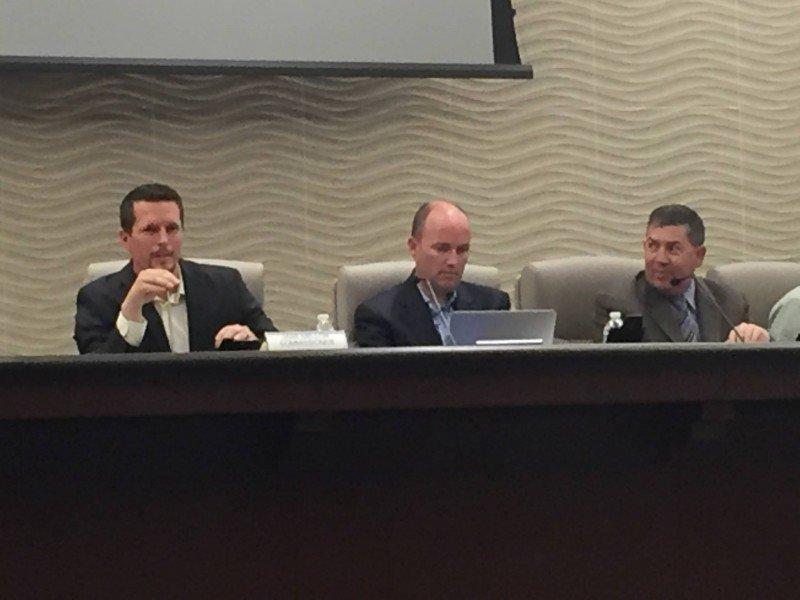Lt. Governor Spencer J. Cox visited Carbon County on Wednesday to introduce his Intergenerational Poverty Initiative. As part of this initiative, Cox is currently serving as chairman of the Intergenerational Welfare Reform Commission.
The Intergenerational Welfare Reform Commission’s overall goal is to reduce the number of families in the cycle of poverty; improve their quality of life and help them become contributing members of our economy. The commission is relying on the help of local leaders to achieve this goal in communities across the state. Therefore, along with other state officials, Cox is planning to visit the counties in Utah that have the highest rate of children at risk of remaining in poverty.
During the Carbon County meeting Cox voiced the difference in Republican and Democratic beliefs when it comes to welfare programs.
“What I realized was that not all poverty is the same,” he said. Cox then explained the difference between “situational” poverty and “intergenerational” poverty. Situational poverty would be classified as a period of being in poverty that is caused by situational factors such as divorce, health problems, environmental disasters, etc. Intergenerational poverty is categorized as poverty and public assistance use that continues from one generation to the next.
In explaining the differences across party lines, Cox joked, “I tell my Republican friends that they need to use their hearts a little more as we talk about these things and I tell my Democrat friends that we need them to use their heads a little more as we find these solutions and work together.” He then went on to explain his initiative to help end intergenerational poverty throughout the state.
“We have many different organizations that are devoted to caring for the poor [in the state],” Cox said. “What we can do is bring all of them together so we are spending our limited resources in a more effective manner.”
Following Cox, Executive Director of the Utah Department of Workforce Services Jon Pierpont spoke about the DWS report on welfare dependency and how that reporting process came to fruition.
Meeting attendees then heard from Ann Silverberg Williamson, Executive Director of Utah’s Department of Human Services and Tracy Gruber, Director of the Office of Child Care, Utah Department of Workforce Services and Senior Advisor of the Intergenerational Poverty Initiative. Gruber spoke about the data that has been collected, specifically in Carbon County, and how that data can be utilized to determine where these programs and resources should be applied to alleviate intergenerational poverty in the state of Utah.
Following the state officials, Tiffany Van Sickle, Four Corners Community Behavioral Health Prevention Coordinator, introduced the newly formed C.A.R.E. (Carbon Addiction Reduction and Elimination) Coalition of Carbon County.
Van Sickle explained that although the C.A.R.E. Coalition’s priority area is substance abuse prevention, it aligns with the intergenerational poverty initiative.
“I think it’s pretty obvious the overlap that’s happening here between the data we’ve seen today and what we are seeing directly from our youth,” she said. “Certainly having partners like you will help us create a sustainable approach to address these issues.”
For more information on intergenerational poverty, visit https://www.jobs.utah.gov/edo/intergenerational/index.html


